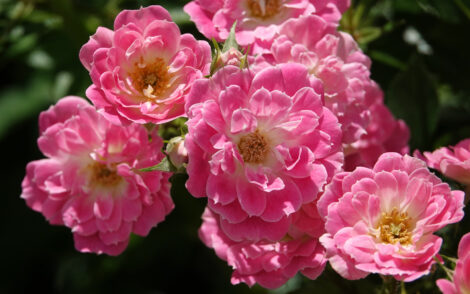Grow Earth-Kind roses for beautiful buds that don’t require the fertilizers, pesticides and extra fuss most roses do. Choose from 21 hardy rose varieties.
It is often thought that growing roses is a difficult and demanding task. To contradict this notion, the Texas AgriLife Extension Service developed the Earth-Kind rose trials. The trials are designed to recognize varieties that thrive with little help from their owners and without harmful chemicals.
Earth-Kind roses are not treated with pesticides or chemical fertilizers and receive no protection during winter. During the trials, water is supplied through drip irrigation and can be given only when rainfall levels are extremely low. Pruning is limited to the removal of dead wood. In other words, these roses must prove they can thrive on their own.
To date, 21 varieties have been recognized as Earth-Kind. Many classes of roses have earned the distinction, including hybrid teas, floribundas, polyanthas and shrubs.
Most Adaptable Varieties of Earth Kind Roses
‘Carefree Beauty.’ Bred in Iowa, ‘Carefree Beauty’ makes a 6-foot rounded shrub with mauve-pink flowers in spring and fall. Hardy to Zone 4.
‘Belinda’s Dream.’ This variety bears beautiful, soft pink flowers on a vigorous, trouble-free shrub. Its fragrant blooms are good for cutting. Hardy to Zone 5.
‘Perle d’Or.’ This polyantha variety produces a 5-foot-high upright shrub that bears small clusters of apricot-buff flowers with a perfect rosebud shape. Hardy to Zone 6.
‘Marie Daly.’ A dwarf shrub up to 3 feet high and wide, ‘Marie Daly’ bears many pink flowers and few thorns. The variety is long-blooming and fragrant, making it a great choice for small gardens. Hardy to Zone 5.
‘Sea Foam.’ A restrained, rambling rose that reaches up to 10 feet high, ‘Sea Foam’ is covered in late spring with hundreds of white flowers. Hardy to Zone 4.
For more information and a complete list of Earth-Kind rose varieties, check out the Earth-Kind roses page from the Texas AgriLife Extension Service.




